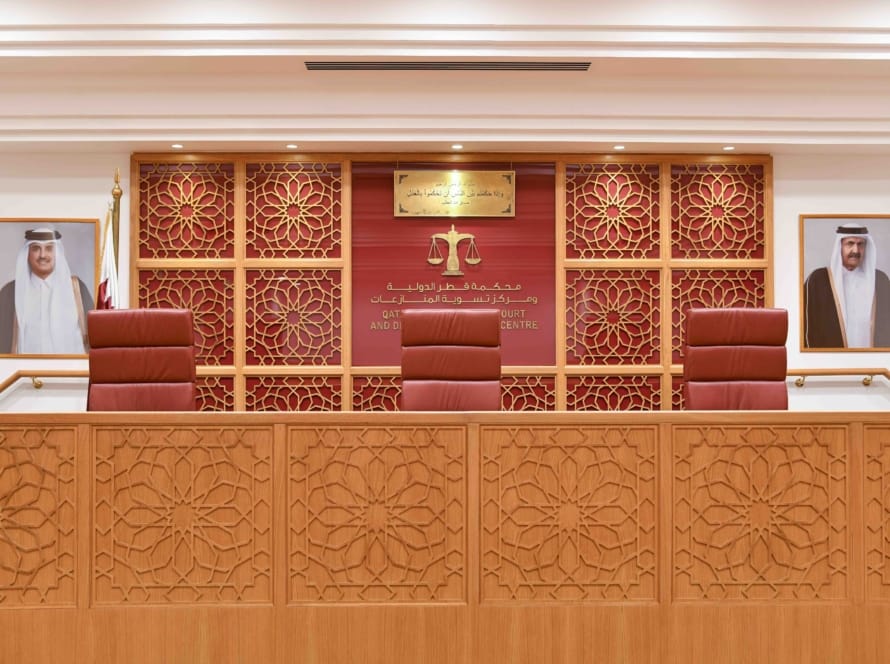By: Michael Earley – Legal Manager
As part of its efforts to ensure the competitiveness of national products, the Qatar Ministry of Commerce and Industry (“MoCI”) recently imposed anti-dumping duties on imports of automotive batteries from the Republic of Korea and the Republic of India. Ministerial Decision No. 21 of 2024 imposes duties on automotive batteries with a capacity ranging from 35 to 115 amperes imported from South Korea, while Ministerial Decision No. 22 of 2024 imposes duties on automotive batteries with a capacity ranging from 32 to 225 amperes imported from India.
Although imposing anti-dumping duties can often be controversial, Qatar has the right to apply them under certain circumstances.
What is “Dumping”?
In the context of international trade, the term “dumping” generally refers to a situation where the price of an exported product is less than its price in its originating domestic market. Although this may seem beneficial for consumers in the importing country, in practice, dumping can harm an importer’s national industry and lead to unfair competition in which national goods cannot compete with the underpriced imports entering the local market.
To combat this practice, countries may unilaterally impose duties on dumped products to restore price balance between imports and national products.
WTO Considerations
According to the World Trade Organization (“WTO”), of which Qatar is a member, countries may act against dumping where there is material injury to the competing domestic industry. However, to impose anti-dumping measures, countries must be able to confirm that dumping is taking place, calculate the extent of dumping (by comparing domestic and export prices, among other methods), and demonstrate that the dumping is causing injury or that there is an impending threat of injury.
The Agreement on the Implementation of Article VI of the General Agreement on Tariffs and Trade 1994 (“Anti-Dumping Agreement”) specifically addresses the circumstances in which a WTO member (“Member”) may impose anti-dumping measures on dumped imports.
Article 1 of the Anti-Dumping Agreement sets out the overriding principle that a Member may not impose anti-dumping measures unless it determines, after conducting an investigation in accordance with the Anti-Dumping Agreement, that (i) the suspect imports have been dumped, (ii) the dumped products are causing (or are threatening to cause) material injury to the domestic industry producing similar or the same products, and (iii) that a causal link exists between the dumped imports and the material injury.
Although Article 2 of the Anti-Dumping Agreement addresses in detail several variations in determining whether an imported product has been dumped, in simple terms the authorities in the importing country must make a fair comparison between the normal value of the product (i.e. the price of the imported product in its country of origin), and the export price (i.e. the price of the product in the importing country).
To determine whether material injury has been caused, authorities in the importing country must objectively investigate the volume and price differences in products and the consequential impact these factors have on the domestic industry. Significantly, to impose anti-dumping measures, the authorities in the importing country must determine that the extent of the dumping (price difference) is not de minimis and that the volume of imports is not negligible. Demonstrable evidence must exist showing that the dumping and the material injury are directly linked.
The Anti-Dumping Agreement also provides detailed procedures regarding the initiation of anti-dumping cases, the means of conducting investigations, and the conditions for ensuring that interested parties are given a chance to present evidence to the Committee on Anti-Dumping Practices and during the WTO’s dispute settlement procedures, if any.
Regional Legislation
In addition to the authorities granted to Members by the WTO and the Anti-Dumping Agreement, Qatar adopted the unified law for combatting dumping and for compensatory and preventive measures for countries of the Gulf Cooperation Council by virtue of Law No. 10 of 2013, which, as the name suggests, addresses anti-dumping measures by GCC countries.
Domestic Legislation
Domestically, dumping is governed by Qatar Law No. 2 of 2019, which supports the competitiveness of national products (“National Product Competitiveness Law” or “NPCL”). This law supplements and expands the powers granted in the Qatar Customs Law (Law No. 40 of 2002). The National Product Competitiveness Law grants the Minister of the MoCI (“Minister”) various powers to combat dumping in the Qatari market.
Article 3 of the National Product Competitiveness Law creates a committee called the “Committee for Supporting Competitiveness of National Products and Combating Practices Harmful to International Trade” (“Committee”) at the MoCI. Producers of national products may file complaints regarding dumping or other unfair trade practices at the MoCI for review by the Committee, which reflects the procedure in Article 5.2 of the Anti-Dumping Agreement. Alternatively, the Minister may approve an investigation initiated by the Committee itself without receiving a prior complaint from the domestic industry, which reflects the provisions of Article 5.6 of the Anti-Dumping Agreement.
Similar to the requirements of the Anti-Dumping Agreement, before imposing anti-dumping measures, the NPCL requires evidence that (i) the suspect imports have been dumped, (ii) the dumped products are causing (or are threatening to cause) material injury to Qatari industries producing similar or the same products, and (iii) that a causal link exists between the dumped imports and the material injury in Qatar.
Once the evidence is established, the Minister may impose (i) anti-dumping measures, (ii) provisional and final countervailing measures, (iii) protective fees against an increase in imports, (iv) quantitative restrictions on imports, and (v) price pledges. These measures and fees often take the form of customs duties applied on imports in addition to the ordinary customs duty typically applied to such imports.
Concerning dumping from non-Member countries, Article 10 of the NPCL permits the Council of Ministers, after receiving a proposal from the Minister and a recommendation from the Committee, to take any measures necessary to support the competitiveness of national products. In such circumstances involving non-Member countries, the requirements and procedures set out in the Anti-Dumping Agreement would not apply.
The parties affected by the anti-dumping measures may appeal the Minister’s decision within thirty days from the date the decision was published. The Minister then has an additional thirty days to consider the appeal, and if no decision is reached, the appeal is deemed refused.
The two anti-dumping ministerial decisions have been published in the Official Gazette.

